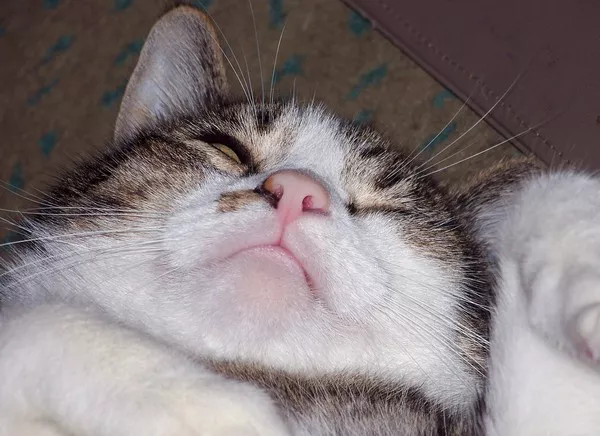Turmeric, a vibrant yellow spice derived from the Curcuma longa plant, has gained significant attention for its health benefits in both humans and animals. Known primarily for its active compound, curcumin, turmeric boasts anti-inflammatory, antioxidant, and antimicrobial properties. While cats are obligate carnivores and primarily thrive on a meat-based diet, the inclusion of certain supplements, like turmeric, can offer additional health benefits. This essay explores the safe and effective ways to incorporate turmeric into your cat’s diet, its potential benefits, and important considerations for pet owners.
Understanding Turmeric and Its Benefits
What is Turmeric
Turmeric is a root that belongs to the ginger family and is commonly used in cooking, particularly in Indian cuisine. Its bright yellow color comes from curcumin, which is responsible for many of its health-promoting properties. Turmeric has been used in traditional medicine for centuries, particularly in Ayurvedic practices, due to its wide range of health benefits.
Health Benefits of Turmeric for Cats
Anti-Inflammatory Properties: Turmeric is known for its ability to reduce inflammation, which can be beneficial for cats suffering from arthritis or other inflammatory conditions.
Antioxidant Effects: The antioxidant properties of curcumin help combat oxidative stress, potentially reducing the risk of chronic diseases.
Digestive Health: Turmeric can aid in digestion and may help alleviate gastrointestinal issues in cats.
Immune System Support: Regular consumption of turmeric may enhance the immune response, helping cats fend off infections and diseases.
Cancer Prevention: Some studies suggest that curcumin may have anti-cancer properties, which could be beneficial in preventing certain types of cancer in cats.
Skin and Coat Health: Turmeric can improve skin health and promote a shiny coat, making it a nice addition to grooming routines.
Safety Considerations
Before introducing turmeric into your cat‘s diet, it’s crucial to consider several factors:
Consult Your Veterinarian: Always consult with your veterinarian before adding any new supplement to your cat’s diet, especially if your cat has existing health conditions or is on medication.
Quality of Turmeric: Ensure that the turmeric you purchase is of high quality, organic if possible, and free from additives or contaminants.
Dosage: The appropriate dosage of turmeric can vary based on your cat’s size and health status. Start with small amounts and monitor your cat’s reaction.
Potential Side Effects: While turmeric is generally safe for cats, some may experience gastrointestinal upset, such as diarrhea or vomiting, particularly if given in large quantities.
Interaction with Medications: Turmeric can interact with certain medications, including blood thinners and anti-inflammatory drugs. Always discuss potential interactions with your vet.
How to Introduce Turmeric to Your Cat’s Diet
Start Slow
When introducing turmeric, it’s essential to start with a small amount to see how your cat reacts. A pinch of turmeric powder mixed into their food can be a good starting point. Observe your cat for any adverse reactions, such as changes in appetite or behavior.
Choose the Right Form
Turmeric is available in various forms, including:
Powder: The most common and versatile form, easily mixed into food.
Capsules: These can be opened and sprinkled onto food, but ensure they are suitable for cats.
Fresh Root: If available, fresh turmeric can be grated and added to meals.
Mixing Turmeric with Food
Mixing turmeric into your cat’s regular food can be a simple way to include it in their diet. Here are some ideas for incorporating turmeric:
Wet Food: Mix a small amount of turmeric powder into your cat’s wet food. The moisture can help mask the taste.
Homemade Treats: You can create homemade cat treats using turmeric. Combine cooked chicken or fish with a small amount of turmeric and form it into bite-sized pieces.
Broth: Prepare a homemade broth using chicken or fish, and add a pinch of turmeric to the mixture. This can be served as a treat or poured over dry food.
Turmeric Paste
Creating a turmeric paste can be an effective way to administer turmeric to your cat. Here’s a simple recipe:
Ingredients:
- 1 tablespoon turmeric powder
- 1 tablespoon coconut oil or olive oil
- Water (as needed)
Instructions:
- In a small bowl, mix the turmeric powder with the oil.
- Gradually add water until you achieve a paste-like consistency.
- Store the paste in an airtight container in the refrigerator for up to a week.
- Add a small amount of the paste to your cat’s food.
Monitor Your Cat’s Reaction
After introducing turmeric, keep a close eye on your cat’s behavior and health. Look for any signs of gastrointestinal distress or allergic reactions. If your cat shows any adverse effects, discontinue use and consult your veterinarian.
Dosage Guidelines
Determining the correct dosage of turmeric for your cat is crucial. While there is no universally accepted dosage, a general guideline is as follows:
Small Cats (under 10 lbs): Start with 1/8 teaspoon of turmeric powder per day.
Medium Cats (10-15 lbs): Start with 1/4 teaspoon per day.
Large Cats (15 lbs and above): Start with 1/2 teaspoon per day.
These amounts can be adjusted based on your cat’s individual needs and reactions. Always consult your veterinarian for personalized advice.
Potential Risks and Side Effects
While turmeric is generally safe for cats, some potential risks and side effects include:
Gastrointestinal Upset: Some cats may experience diarrhea, vomiting, or stomach upset if they consume too much turmeric.
Allergic Reactions: Although rare, some cats may be allergic to turmeric. Signs of an allergic reaction include itching, swelling, or difficulty breathing.
Blood Thinning: Turmeric can have blood-thinning effects, which may pose risks for cats on anticoagulant medications.
Interaction with Medications: As mentioned earlier, turmeric can interact with certain medications. Always consult your veterinarian before introducing turmeric if your cat is on medication.
Conclusion
Incorporating turmeric into your cat’s diet can provide numerous health benefits, from reducing inflammation to supporting digestive health. However, it is essential to approach this addition with caution, starting with small amounts and monitoring your cat’s reaction. Consulting with a veterinarian is crucial to ensure that turmeric is a safe and beneficial supplement for your feline friend.
By following the guidelines outlined in this essay, cat owners can responsibly introduce turmeric into their pets’ diets, potentially enhancing their overall health and well-being. As with any dietary change, patience and observation are key to ensuring a positive experience for both you and your cat.
Related topic:

























